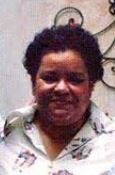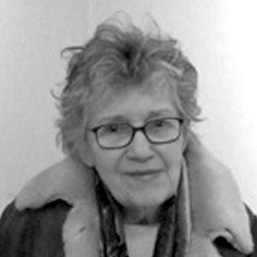 W
WGabriela de la Caridad Azcuy Labrador was a Cuban nurse and poet who participated in the Cuban War of Independence. On 10 February 1896, she joined the militia of Miguel Lores near Gramales as an army medic. The following year, General Lorente wrote that "in the heat of battle at Las Cañas, between Guane and Mantua, Mrs. Azcuy got off of her horse to heal the wounded in such moments of peril that other doctors had already temporarily withdrawn." Azcuy was made a Captain and after the war entered politics as the Secretary of the Board of Education in Viñales.
 W
WBrígida Agüero y Agüero (1837-1866) was a 19th-century poet from Camagüey, Cuba.
 W
WOdette Alonso is a poet, storyteller, essayist, and promoter of Cuban literature. She has a degree in philology. She currently lives in Mexico, where she has resided since 1992.
Caridad Atencio is a Cuban poet and essayist.
 W
WGertrudis Gómez de Avellaneda y Arteaga was a 19th-century Cuban-born Spanish writer. Born in Puerto Príncipe, she lived in Cuba until she was 22. Her family moved to Spain in 1836, where she started writing as La Peregrina, and she lived there until 1859, when she moved back to Cuba with her second husband until his death in 1863, after which she moved back to Spain. She died in Madrid in 1873 from diabetes at the age of 58.
 W
WJuana Borrero was a Cuban painter and poet.
 W
WLydia Cabrera was a Cuban independent ethnographer.
 W
WLourdes Casal was an important poet and activist for the Cuban community. She was internationally known for her contributions to psychology, writing, and Cuban politics. Born and raised in Cuba, she sought exile in New York because of Cuban communist rule. Casal received a master's degree in psychology in 1962 and later, a doctorate in 1975 from the New School for Social Research. She wrote the book El caso Padilla: literatura y revolucion en Cuba, which illustrated the failing relationship between writers and Cuban officials. A year later, she co-founded a journal named Nueva Generation which focused on creating dialogue on relationships between Cubans living abroad and on the island. Casal earned notoriety by attempting to reconcile Cuban exiles in the United States. She was instrumental in organizing a dialogue between Cuban immigrants and Fidel Castro, which led to the release of thousands of Cuban prisoners. She was the first Cuban-American to receive the Casa de las Américas Prize, which was awarded to her posthumously in 1981.
Aurelia Castillo de González was a Cuban writer. She wrote short stories, poems, prose, and was also a typographer, biographer, editor, and travel writer.
 W
WLorenza Teresa Inocencia Casuso y Morín was a prominent Cuban intellectual, who fought for democracy and freedom in Cuba. As a writer, she worked in various genres, including novel, theater, chronicle, poetry, as well as radio and cinematographic libretos. Her journalistic work appeared in several publications in Cuba, Mexico and the US. She also worked as a translator and drama teacher; and was an actress of stage and screen. Along with several other middle-class, educated women writer contemporaries - Emilia Bernal, Lydia Cabrera, Ana Maria Simo, Hilda Perera Soto, and Rita Geada - Casuso left Cuba after the 1959 Revolution.
 W
WAlba de Céspedes y Bertini was a Cuban-Italian writer.
 W
WÚrsula Céspedes was a Cuban poet and founder of the Academia Santa Úrsula in Manzanillo, Cuba, originally from Bayamo, Cuba.
 W
WRafaela Chacón Nardi was a Cuban poet and educator. She was the author of more than 30 books. In 1971, at the request of UNESCO, she founded Grupo de Expresión Creadora. She directed the Clubes de Promoción a la Lectura for blind and low vision adolescents in Cuba. She was the recipient of the Alejo Carpentier medal.
 W
WDaína Chaviano is a Cuban-American writer of French and Asturian descent living in the United States since 1991.
 W
WMaría Collado Romero was a Cuban journalist, poet, and feminist. She was the first female news reporter and parliamentary reporter in Cuba. She was the creator and president of the Democratic Suffragist Party of Cuba.
 W
WJosefina García-Marruz Badía is a Cuban poet and literary researcher. She has received numerous awards, including the National Prize for Literature (1990), Pablo Neruda Ibero-American Poetry Award (2007), and the Reina Sofía de Poesía Iberoamericana (2011).
 W
WWendy Guerra, formally Wendy Guerra Torres Gomez de Cadiz, is a Cuban poet and novelist. After a brief career acting in Cuban film and television, she turned to writing and won recognition more readily abroad than within Cuba. Her works have been translated into thirteen languages. She has been described as "a kind of diva of contemporary Cuban literature".
 W
WDulce María Loynaz Muñoz was a Cuban poet.
Nancy Morejón is a Cuban poet, critic, and essayist. She was a recipient of the Struga Poetry Evenings Golden Wreath Award.
 W
WCarilda Oliver Labra was a Cuban poet. She was born in Matanzas and died there as well.
 W
WGina Pellón was a Cuban painter who lived in France. She was known for her abstract expressive paintings in strong colours, usually depicting women. She also wrote collections of poems.
 W
WLuisa Pérez de Zambrana was a Cuban writer and translator. She was one of Cuba's greatest poets.
 W
WDora Varona Gil was a Cuban-Peruvian poet, narrator, and missionary. After the death of her husband, Peruvian writer Ciro Alegría, she compiled, edited, and studied his work.